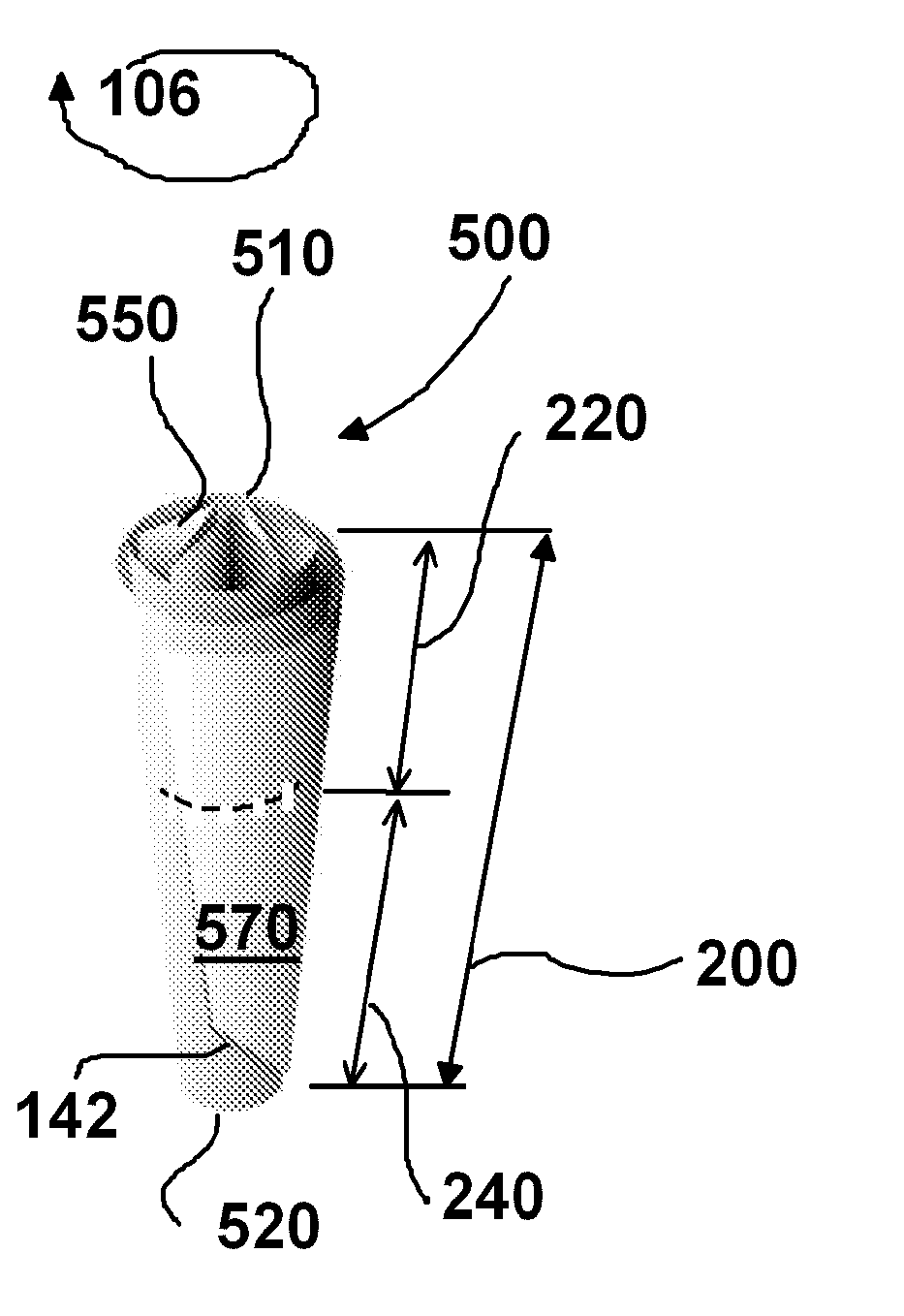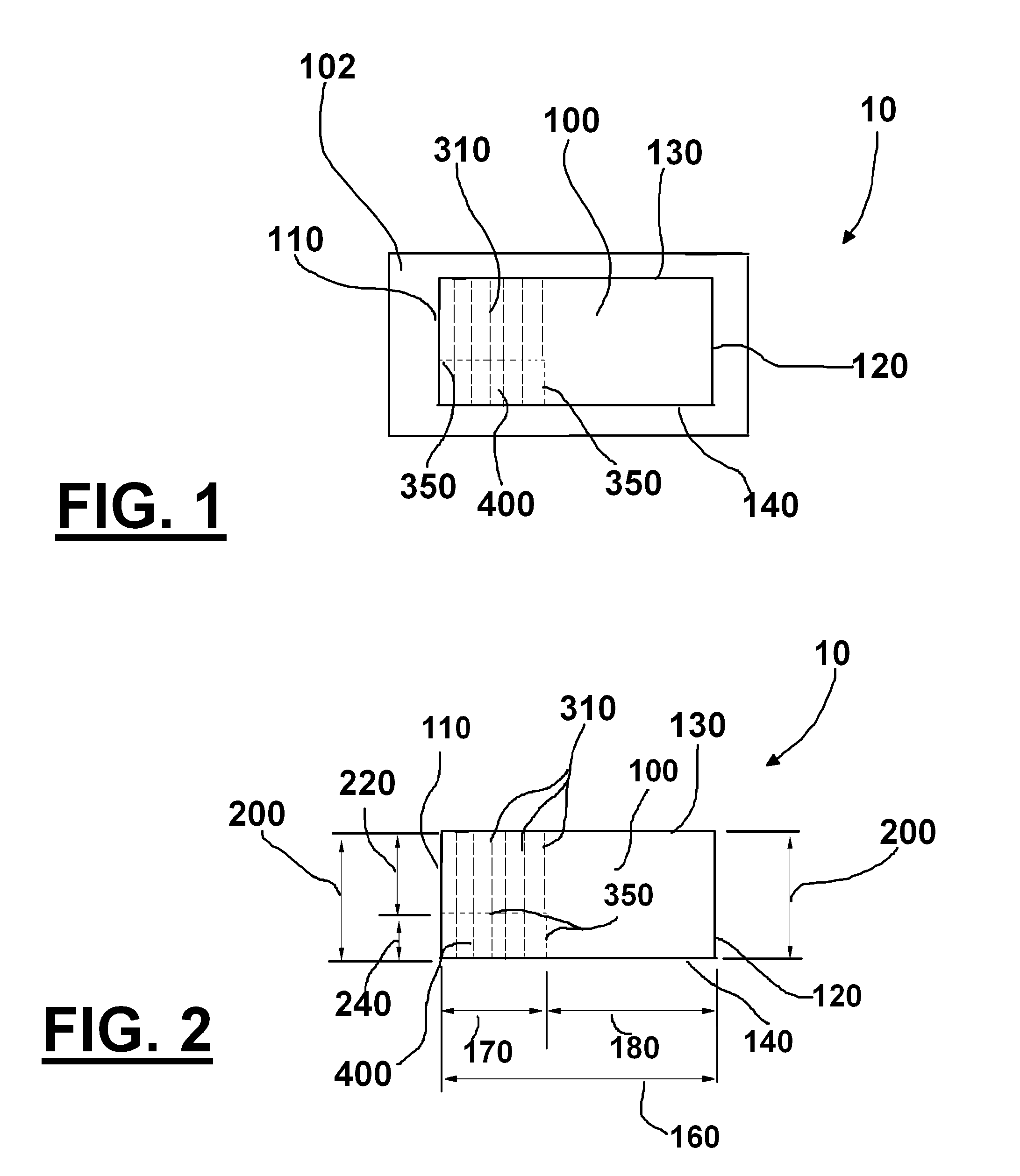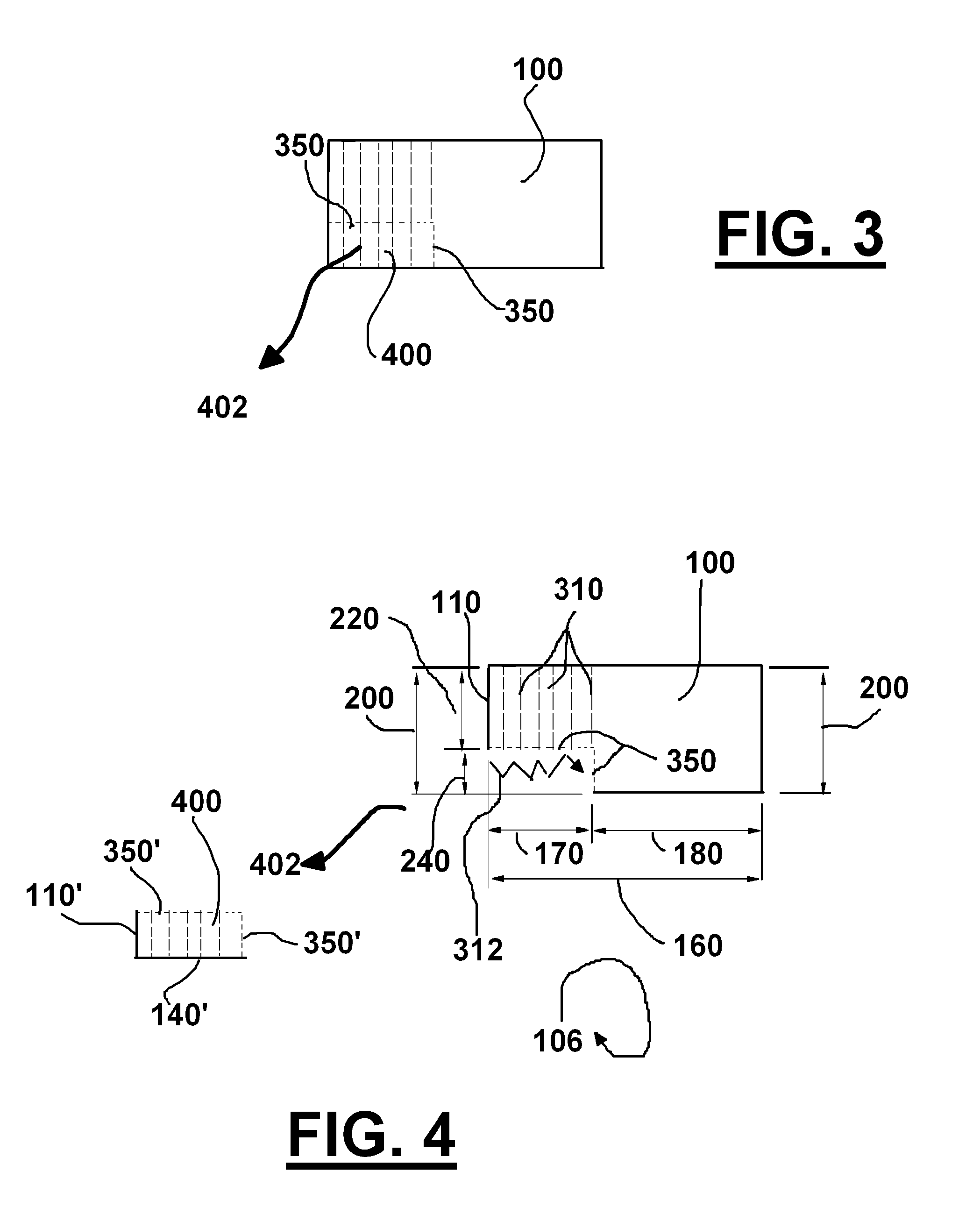Filter tip, tubes, and cones
a filter tip and cone technology, applied in tobacco smoke filters, tobacco treatment, tobacco, etc., can solve the problems of high degree of digital dexterity, cigarette unsmokable, and longer portion to be rolled too tight or too loose around itsel
- Summary
- Abstract
- Description
- Claims
- Application Information
AI Technical Summary
Benefits of technology
Problems solved by technology
Method used
Image
Examples
Embodiment Construction
[0107]Filter Strip
[0108]As shown in FIGS. 1-4, filter strip 100 can be configured in the shape of a rectangular strip having a length 160 and width 200. FIG. 1 is a top view of a filter rolling strip 100 which is punched in an encasing form 102. FIG. 2 is a top view of the filter rolling strip 100 after it has been removed from the encasing form 102.
[0109]Filter strip 100 can have sides 110, 120, 130, and 140, and can include a removable portion 400. A plurality of perforation, etched, or fold lines 310 can be included.
[0110]Filter strip 100 can be formed from a pliable and deformable material, such as paper, plastic, metal and the like, that is capable of retaining a folded and / or spiral shape when rolled upon itself from one end. In a preferred embodiment, the filter strip 100 can be formed from a material is relatively less flammable than sheet 600 (shown in FIGS. 11 and 12) and / or the tobacco filler 1150 so that when all of the tobacco filler material has been consumed the cigar...
PUM
 Login to View More
Login to View More Abstract
Description
Claims
Application Information
 Login to View More
Login to View More - R&D
- Intellectual Property
- Life Sciences
- Materials
- Tech Scout
- Unparalleled Data Quality
- Higher Quality Content
- 60% Fewer Hallucinations
Browse by: Latest US Patents, China's latest patents, Technical Efficacy Thesaurus, Application Domain, Technology Topic, Popular Technical Reports.
© 2025 PatSnap. All rights reserved.Legal|Privacy policy|Modern Slavery Act Transparency Statement|Sitemap|About US| Contact US: help@patsnap.com



